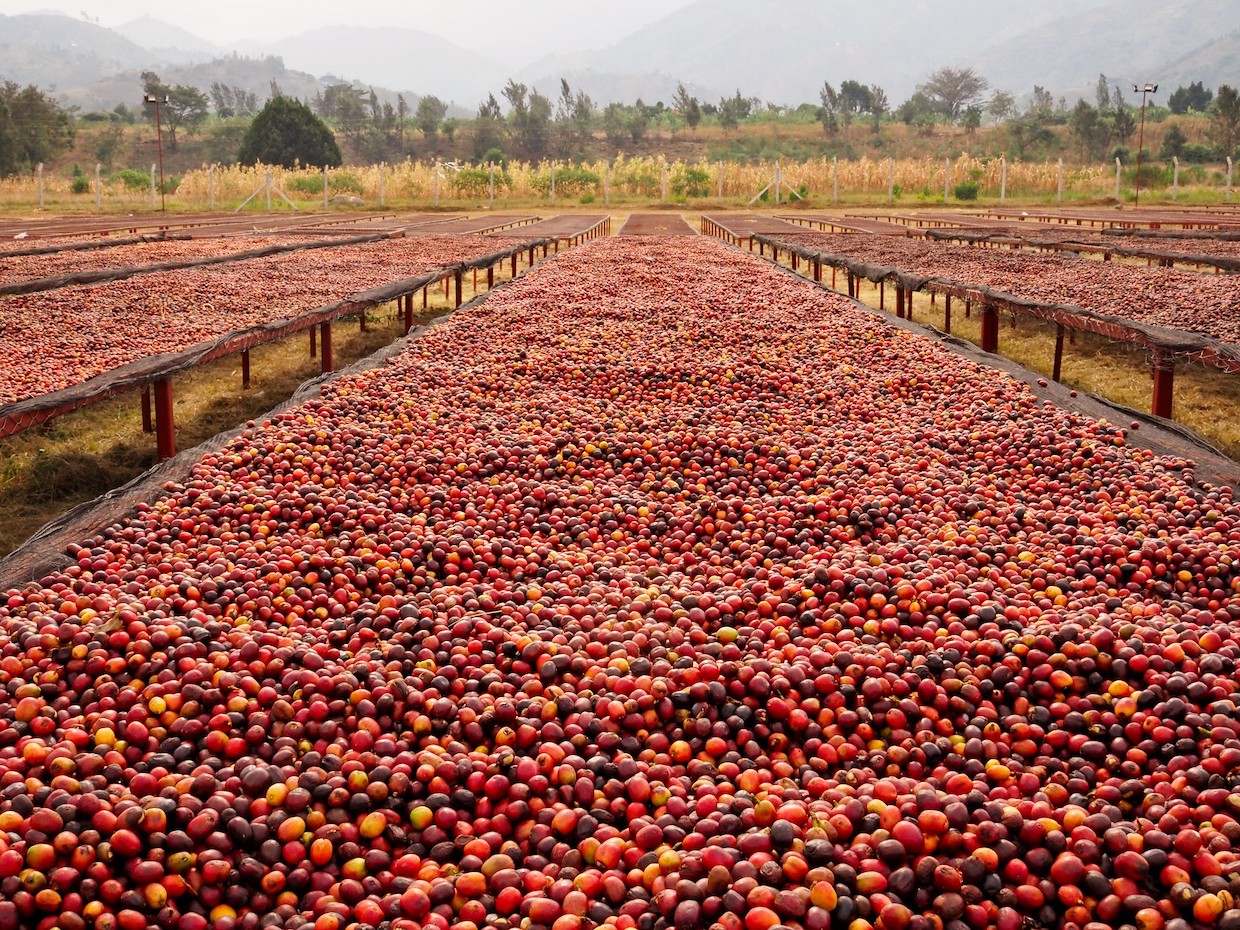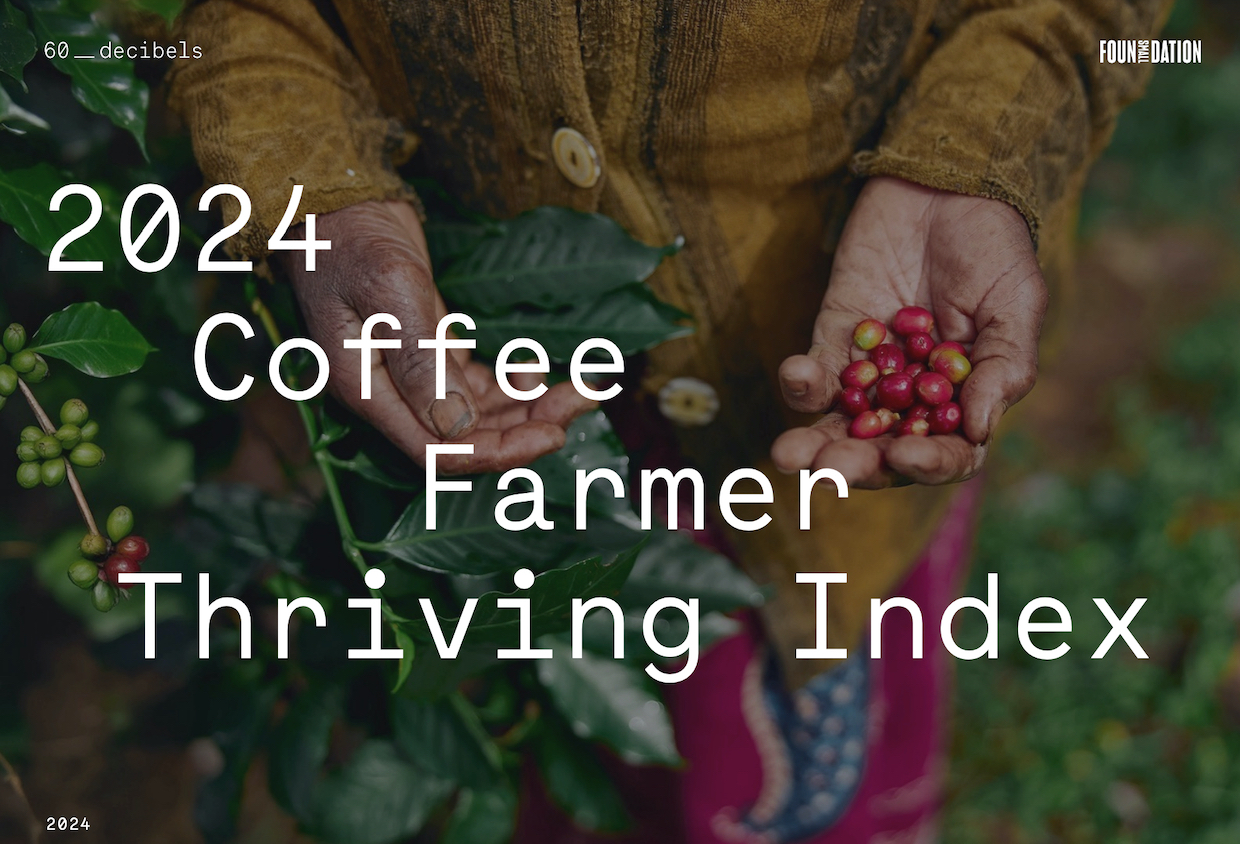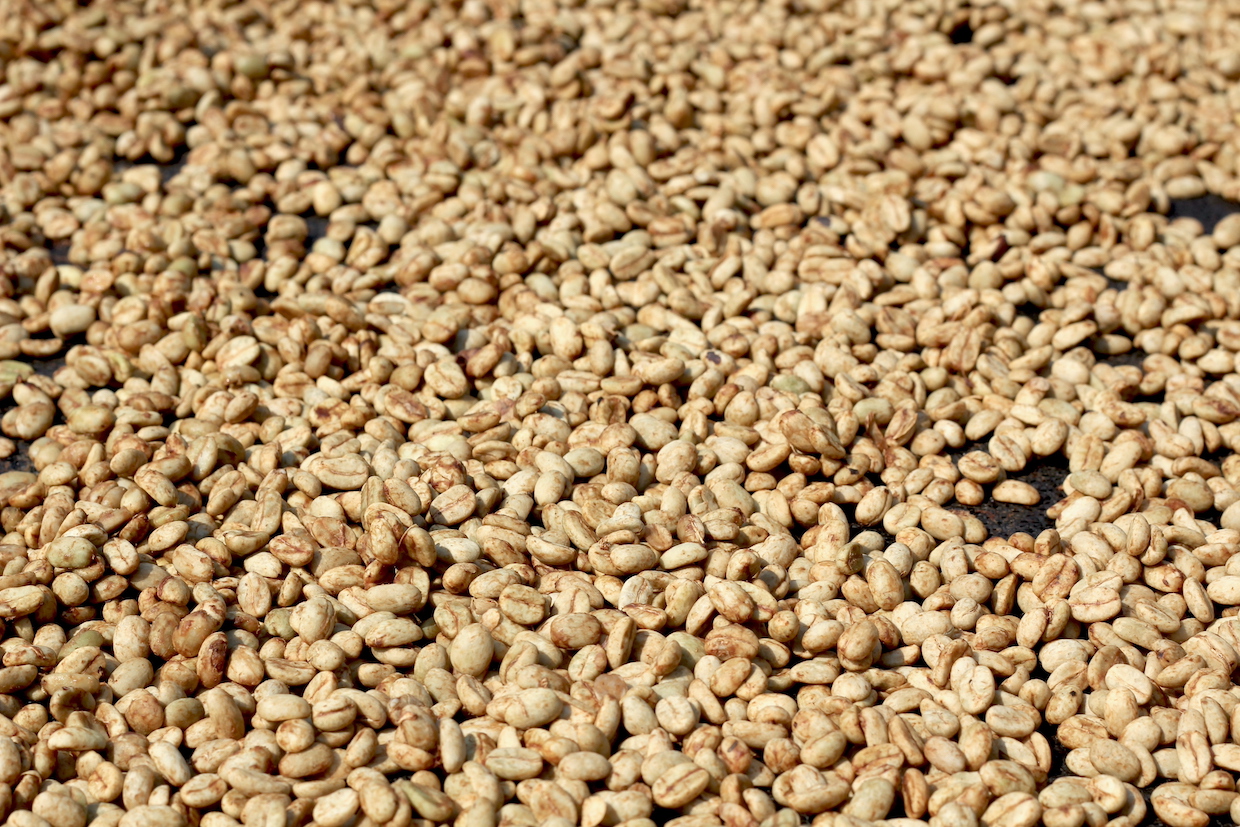A major report from the social impact assessment firm 60 Decibels found that more than one third of coffee farmers in Uganda reported no profit in the previous year, with 21% reporting financial losses.
Additionally, 57% of Ugandan coffee farmers are classified as experiencing “minimal food insecurity” while nearly one third (29%) are classified as “food stressed.”
These results come from the newly released Farmer Thriving Index, which 60 Decibels describes as a “standardized and holistic measure of farmer wellbeing” based on direct phone interviews with thousands of farmers.
The inaugural index, which focused on farmers nationwide in Uganda as well as Rwanda, is the result of a pilot project launched last year between Ireland-based Small Foundation, which is focused on extreme poverty populations in Africa, and 60 Decibels, with maintains offices in India, Europe, the United States and Latin America.

“Ugandan coffee cherry” by Bex.Walton is licensed under CC BY 2.0.
60 Decibels United States Agriculture Lead Ellie Turner said the project may help inform the firm’s future projects in the coffee sector.
“60 Decibels will certainly continue to support businesses in the coffee supply chain in measuring their impact and assessing the wellbeing of the farmers in their supply chain,” Taylor told DCN. “We are in the process of scoping the possibility for another coordinated, sector-wide study in future years. We’d love to hear from coffee partners that would be interested in participating in a future study.”
The 33-page Farmer Thriving Index on coffee, which is largely focused on Ugandan farmers, paints a picture of a sector facing numerous existential challenges, including climate change and lack of access to markets, extension services and financial relief.
The index found that 46% of Ugandan coffee farmers were not able to save any money within the past year, while 22% managed to save only occasionally. Meanwhile, farmers generally reported that access to emergency funds would be difficult.
Fewer than one fifth of farmers reported having access to reliable agricultural extension services. The survey also found low rates nationally regarding farmers’ access to insurance (2%), access to weather alerts and information (12%) and access to credit (11%).
Despite these challenges, nearly all farmers surveyed expect to produce coffee for at least the next five to 10 years, according to the report. The report also explores regional differences within survey results, as well as differences among cooperative-member farmers and independent farmers.
For example, farmers associated with the four Uganda cooperatives participating in the study were significantly more likely to report reliable access to at least one essential service (80%) compared to the independent smallholder farmers (51%).
The report acknowledges that it merely “scratches the surface” regarding the East African coffee sector.
“Coffee producers — much like cups of coffee — vary widely,” the authors stated. “Even within Uganda, altitudes, microclimates, varieties and access to services change the lived experience of growing coffee. Therefore, we have no universal recommendation to improve farmer wellbeing beyond this: listen to the farmers.”
Comments? Questions? News to share? Contact DCN’s editors here.
Nick Brown
Nick Brown is the editor of Daily Coffee News by Roast Magazine.








Comment